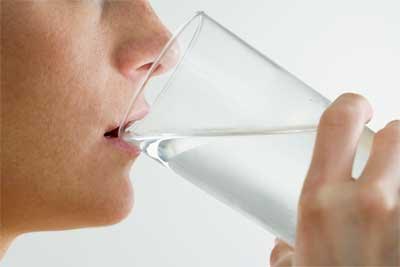- Home
- Editorial
- News
- Practice Guidelines
- Anesthesiology Guidelines
- Cancer Guidelines
- Cardiac Sciences Guidelines
- Critical Care Guidelines
- Dentistry Guidelines
- Dermatology Guidelines
- Diabetes and Endo Guidelines
- Diagnostics Guidelines
- ENT Guidelines
- Featured Practice Guidelines
- Gastroenterology Guidelines
- Geriatrics Guidelines
- Medicine Guidelines
- Nephrology Guidelines
- Neurosciences Guidelines
- Obs and Gynae Guidelines
- Ophthalmology Guidelines
- Orthopaedics Guidelines
- Paediatrics Guidelines
- Psychiatry Guidelines
- Pulmonology Guidelines
- Radiology Guidelines
- Surgery Guidelines
- Urology Guidelines
Hyponatremia-Can drinking eight glasses of water a day be harmful?

Sydney : Challenging the popular notion that we should drink eight glasses of water a day for good health, researchers have found that drinking too much water can put people in danger of water intoxication.
Researchers from Monash University in Victoria, Australia, have found a mechanism that regulates fluid intake in the human body and stops us from over-drinking.
The findings showed that excess of water in the body can cause water intoxication or hyponatremia a condition that occurs when vital levels of sodium in the blood become abnormally low.
The condition can potentially give rise to symptoms ranging from lethargy and nausea to convulsions and coma.
The study revealed that a 'swallowing inhibition' is activated by the brain after excess liquid is consumed, helping maintain tightly calibrated volumes of water in the body.
"If we just do what our body demands us to we'll probably get it right - just drink according to thirst rather than an elaborate schedule," said Michael Farrell, Associate Professor at Monash University.
For the study, the team asked participants to rate the amount of effort required to swallow water under two conditions: following exercise when they were thirsty and later after they were persuaded to drink an excess amount of water.
The results showed a three-fold increase in effort after over drinking.
Further, the team used functional magnetic resonance imaging (fMRI) and found that the right prefrontal areas of the brain were much more active when participants were trying to swallow with much effort.
"We found effort-full swallowing after drinking excess water, which meant they were having to overcome some sort of resistance, as the swallowing reflex becomes inhibited once enough water has been drunk," Farrell said.
The study was published online in the Proceedings of the National Academy of Sciences.

Disclaimer: This site is primarily intended for healthcare professionals. Any content/information on this website does not replace the advice of medical and/or health professionals and should not be construed as medical/diagnostic advice/endorsement or prescription. Use of this site is subject to our terms of use, privacy policy, advertisement policy. © 2020 Minerva Medical Treatment Pvt Ltd